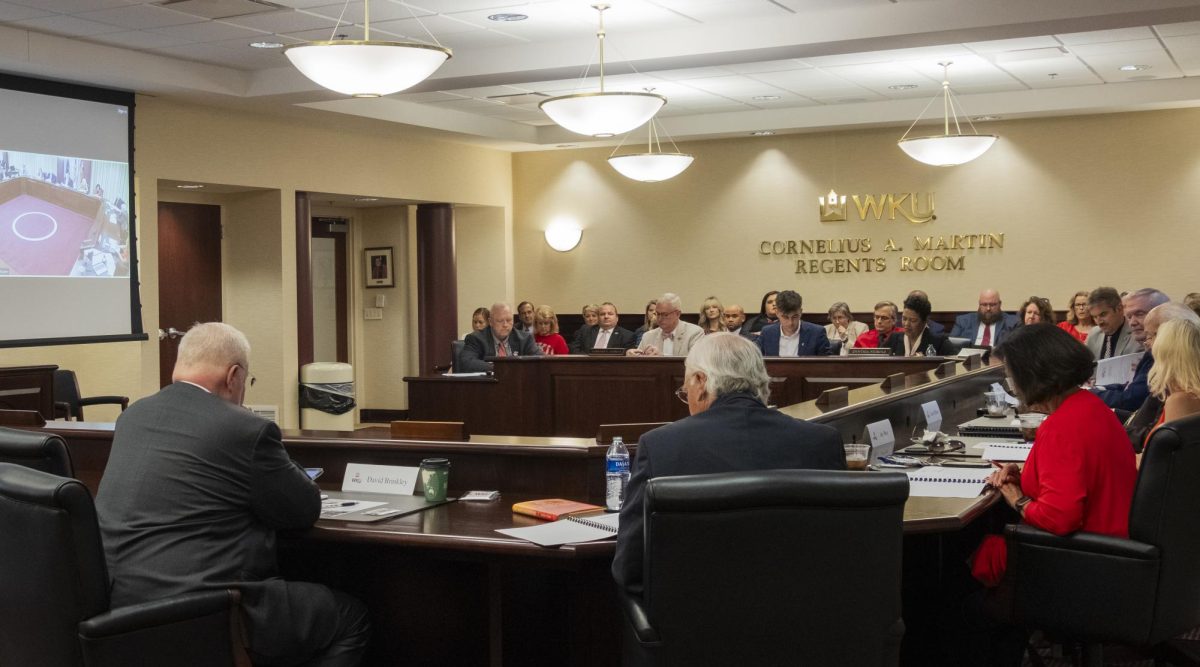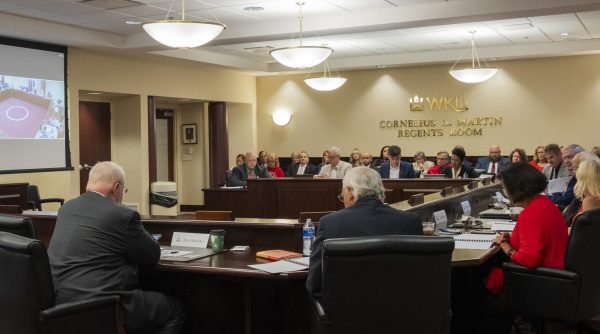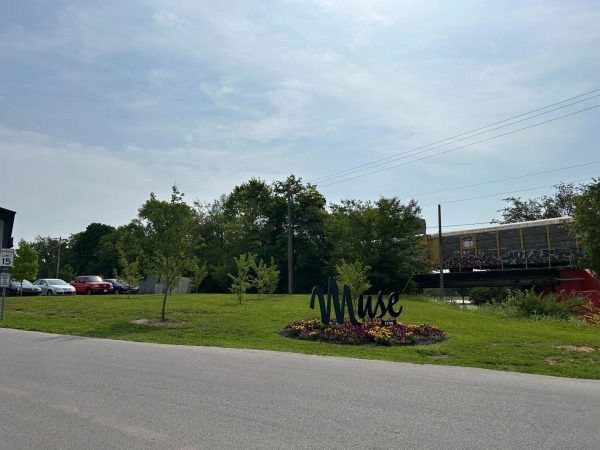WKU gets all-clear on fifth-year accreditation report
July 7, 2021
The Southern Association of Colleges and Schools Commission on Colleges notified WKU Tuesday that the university has successfully completed its fifth-year interim accreditation report with no concerns, questions, or additional reporting required.
“I couldn’t be more pleased with the outcome,” Rob Hale, associate provost for faculty and academic excellence and WKU’s SACSCOC liaison, said in a WKU press release. “This means WKU has successfully demonstrated compliance with all standards. Our team did an outstanding job producing a top-notch report that is vital to the success of our institution.”
The fifth-year report covers several important accreditation standards that include improving student learning and maintaining an appropriate and safe physical plan while providing adequate staffing and adequate student support services. An institution may lose state and federal funding along with its ability to grant degrees if loses accreditation.
“An institution might have to write a follow-up report or answer questions from SACSCOC if it cannot demonstrate compliance with certain standards,” Hale said in an email interview. “If serious issues are raised with certain standards, then the institution might have to write a monitoring report until the standard is met.” In WKU’s case, none of that happened.
The fifth-year report is a crucial step in a 10-year reaffirmation cycle for academic accreditation. In each reaffirmation cycle, colleges and universities develop a quality enhancement plan based on the institution’s efforts to improve performance in a certain area. SACSCOC notified WKU that its 2015 plan — improving students’ evidence-gathering, argumentation and sense-making skills — had been successful.
“The way the process works, institutions are looking at how well they comply with standards — it’s more of a report than a plan,” Hale said by email. “As an institution reviews compliance it might learn about ways it can improve, but that’s a secondary part of the process. Results of a reaffirmation report can influence a strategic plan, which is the chief way universities plan for the future.”
WKU President Timothy Caboni, in announcing the news, praised the team that put together the report for SACSCOC.
“To produce a document that is 200 pages long with hundreds of additional pages of supporting materials during the past year was a substantial undertaking, but our faculty and staff rose to the challenge,” Caboni said in a WKU press release. “It is extremely rare for a university to be notified that no additional information is required in the reaffirmation process. This speaks to the fact that WKU is staying true to its mission of serving students and that we have a strong strategic plan guiding our steps.”
WKU will begin work on its full accreditation efforts that takes place every 10 years. The 2025 SACSCOC review will be a more thorough and vigorous process, Hale said by email. A key area, he said, is how WKU assesses student learning. The effort to improve in this particular metric will be led by Molly Kerby, assistant provost for institutional effectiveness.
“This is one of the most difficult parts of reaffirmation, and she’s put together a solid team to help us continue to improve in this area,” Hale said in the email. “We also need to find ways to leverage technology to help us track our work and progress better.”
Editor’s note: A previous version of this story incorrectly described Molly Kerby’s role in WKU’s 2025 accreditation review report. It has been edited to clarify that Kerby will lead the effort to improve assessment of student learning. The Herald regrets the error.


























